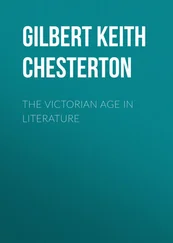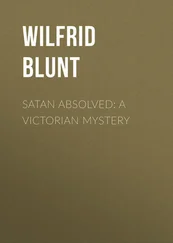Michael Kurland - Victorian Villainy
Здесь есть возможность читать онлайн «Michael Kurland - Victorian Villainy» весь текст электронной книги совершенно бесплатно (целиком полную версию без сокращений). В некоторых случаях можно слушать аудио, скачать через торрент в формате fb2 и присутствует краткое содержание. Жанр: Классический детектив, на английском языке. Описание произведения, (предисловие) а так же отзывы посетителей доступны на портале библиотеки ЛибКат.
- Название:Victorian Villainy
- Автор:
- Жанр:
- Год:неизвестен
- ISBN:нет данных
- Рейтинг книги:5 / 5. Голосов: 1
-
Избранное:Добавить в избранное
- Отзывы:
-
Ваша оценка:
- 100
- 1
- 2
- 3
- 4
- 5
Victorian Villainy: краткое содержание, описание и аннотация
Предлагаем к чтению аннотацию, описание, краткое содержание или предисловие (зависит от того, что написал сам автор книги «Victorian Villainy»). Если вы не нашли необходимую информацию о книге — напишите в комментариях, мы постараемся отыскать её.
Victorian Villainy — читать онлайн бесплатно полную книгу (весь текст) целиком
Ниже представлен текст книги, разбитый по страницам. Система сохранения места последней прочитанной страницы, позволяет с удобством читать онлайн бесплатно книгу «Victorian Villainy», без необходимости каждый раз заново искать на чём Вы остановились. Поставьте закладку, и сможете в любой момент перейти на страницу, на которой закончили чтение.
Интервал:
Закладка:
“Ah!” Moriarty said. “Do you still have the note?”
Wilde took a crumpled piece of paper from his pocket, smoothed it out, and handed it to Moriarty. In large print, which I could easily make out from where I sat, the note said simply:? 10.000
“Succinct,” Moriarty commented.
“I thought so,” Wilde agreed.
“And you have heard nothing further?”
“Not yet.”
“Do you have access to that sort of money?”
“Not if I sell all I own. Not if I sell my soul.”
Moriarty turned to me. “You see why, Barnett, were I to resort to blackmail, I would not choose artists, writers or actors as my targets. Few of them have sufficient wealth for the project to be worth the effort.” He returned his attention to Wilde. “Do you know who the other gentleman in the photograph is?”
“His name is Rob Reynard,” Wilde said. “He is an understudy in the theatrical company that is now putting on a new play of mine. ‘Lady Windermere’s Fan.’ The play is now in rehearsal.”
“And what does he know of this?”
“I have not had the opportunity to speak with him since receiving the picture. He did not appear at rehearsal yesterday or today.”
“Have you actually had any, er, relationship with this young man?” Moriarty asked.
Wilde shook his head. “Even were I interested in such a liaison, Mr. Reynard is not my type. He’s much too earnest a young man. I must have frivolity and clever badinage, and poor Rob seems incapable of either.”
Moriarty thought for a moment. “Do you have any idea where this photograph was taken?” he asked.
“I believe it’s the drawing-room set of Lady Windermere,” Wilde said. “It looks as though we were placed and, ah, arranged on stage.”
“And this stage is?”
“At the St. James Theater.”
Moriarty rose. “Then let us go forth,” he said. “I would tread those boards.”
“At this hour?” I asked.
Moriarty pulled out his pocket watch and consulted it. “It’s barely ten o’clock,” he said. “Surely the theater will still be inhabited.”
“Rehearsals often go on until past midnight,” Wilde affirmed. “But I trust it won’t be necessary to mention why you are there.” I noticed that Wilde had accepted the professor’s innocence of involvement without further discussion.
“Of course not,” Moriarty agreed. “Incidently, if you went to see Mr. Sherlock Holmes, why did he not take your case?”
“Apparently he believed some of the more outrageous stories about me, even if he wasn’t convinced that the photo was genuine.” Wilde said. “His words were that he doesn’t choose to defend immorality.”
“Ever the prig,” Moriarty commented. “Well, let us be off!”
The rehearsal had ended for the night when we arrived at the theater, and Moriarty had the stage to himself. He spend some time comparing the stage to the photograph, measuring distances and angles with a tape measure and a protractor, and jotting notes and formulas in a small notebook. He had Wilde show him the room from which Wilde had presumably been abducted and he examined the staircase off the front vestibule that led to it.
It was about an hour and a half later when the professor closed his notebook and returned it to his jacket pocket. “I suggest we adjourn for the night,” he said.
“Have you discovered anything?” asked Wilde.
“I believe I see a course of action that might be not without profit,” Moriarty told him.
“Umph,” said Wilde.
“Be at my house tomorrow at, say, three in the afternoon, and I may have some news for you.”
And we had to be satisfied with that.
I was not sure that I should include myself in the invitation to return to Moriarty’s house on the morrow, but Wilde assured me that he desired my continued presence, and so I acquiesced. I confess that I had a strong desire to see the thing through.
Wilde and I showed up at the professor’s doorstep within moments of each other at three on Wednesday. Mr. Maws showed us into the professor’s office, where we found him behind his desk fiddling with a square black object about the size of a small footstool. “This is the cause of your troubles,” he told Wilde, placing the object on his desk.
“What is it?” I asked.
“It’s the new Baum-Lamphier self-loading camera.” He spun it around and demonstrated. “Lens here, ground glass viewing screen on the back.” He turned the thing upside-down. “A film pack of twelve glass plates is loaded in here, and then you turn this lever.” He swung it upright again. “And now it’s loaded and ready to take the first picture. A modern advance in photography which allows the taking of pictures more rapidly if not more artistically.”
“That machine took the photograph?” Wilde asked.
“Well, not this very one, but something very much like it.”
“How do you know that?” I asked.
“There is a slight black bar at the top of Mr. Wilde’s photograph,” said Moriarty.
“Not my photograph,” Wilde interjected bitterly.
“Ah, yes. But nonetheless there is the bar. Approximately an eighth of an inch long by a sixteenth of an inch wide, and three-eights of an inch from the top of the photograph on the left-hand side.”
“Not much of a bar,” I opined.
“But sufficient,” Moriarty said. “Sufficient.”
“What does it signify?” Wilde asked.
“Observe,” Moriarty said, raising the camera. He pointed it toward the window and clicked the shutter. “Now that one negative plate has been expended,” he said, “we need to put a new plate in position. But we don’t have to remove the used plate first, a process that is time-consuming and destructive of the artistic impulse. Instead-” Moriarty pulled a lever and turned the camera upside down. A loud click and a soft thud sounded from inside the camera. Moriarty released the lever and righted the camera. “ Voila! The fresh plate is now in position.”
“Clever,” I said.
“Oh the wonders of modern science,” Wilde said, “will they never cease?”
“Held in place,” Moriarty continued, “by a spring and two pins, one on each side of the plate. And, due to what I must assume is a slight but normally unnoticeable manufacturing flaw, the left pin protrudes slightly into the frame of the photograph.”
Wilde looked thoughtful for a moment, and then smiled. Perhaps for the first time in days. “I see,” he said. “By, I assume, an eighth of an inch?”
“Precisely,” Moriarty agreed.
“So this is the camera…”
Moriarty lifted a folded piece of foolscap from his desk. “The camera is only recently been brought over from Bohemia, where it is manufactured,” he said. “And only two stores in the London area have them. I have here the names of the fourteen people who have purchased a Baum-Lamphier since they first arrived six weeks ago.” He handed the paper to Wilde. “Do you recognize a name?”
Wilde perused the list, his finger running down the page, muttering the names to himself. Then he suddenly sat back and exclaimed a sharp epithet which I will not record here.
“Ah!” said Moriarty. “There is a familiar name on the list?”
“Bromire,” Wilde said, spitting the name out. “Alexis Bromire.
“And he is?”
“The company’s lighting director.”
“I suspected as much,” Moriarty said. “The contrast and the lack of shadow in the photograph made me suspect that the scene had been carefully-and perhaps professionally-lit.”
“A strutting little man with a repulsive toothbrush of a mustache occupying much of his upper lip,” Wilde said. “Dresses in overly-tailored black suits like a-” Wilde searched for a phrase “-like a dancing mortician.”
Читать дальшеИнтервал:
Закладка:
Похожие книги на «Victorian Villainy»
Представляем Вашему вниманию похожие книги на «Victorian Villainy» списком для выбора. Мы отобрали схожую по названию и смыслу литературу в надежде предоставить читателям больше вариантов отыскать новые, интересные, ещё непрочитанные произведения.
Обсуждение, отзывы о книге «Victorian Villainy» и просто собственные мнения читателей. Оставьте ваши комментарии, напишите, что Вы думаете о произведении, его смысле или главных героях. Укажите что конкретно понравилось, а что нет, и почему Вы так считаете.
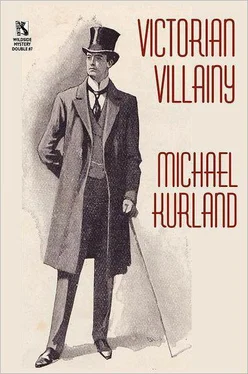
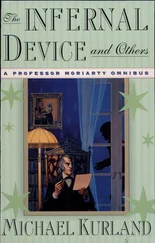






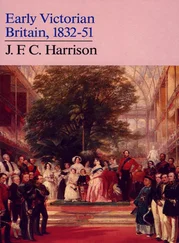

![Brian Thompson - A Monkey Among Crocodiles - The Life, Loves and Lawsuits of Mrs Georgina Weldon – a disastrous Victorian [Text only]](/books/704922/brian-thompson-a-monkey-among-crocodiles-the-life-thumb.webp)
